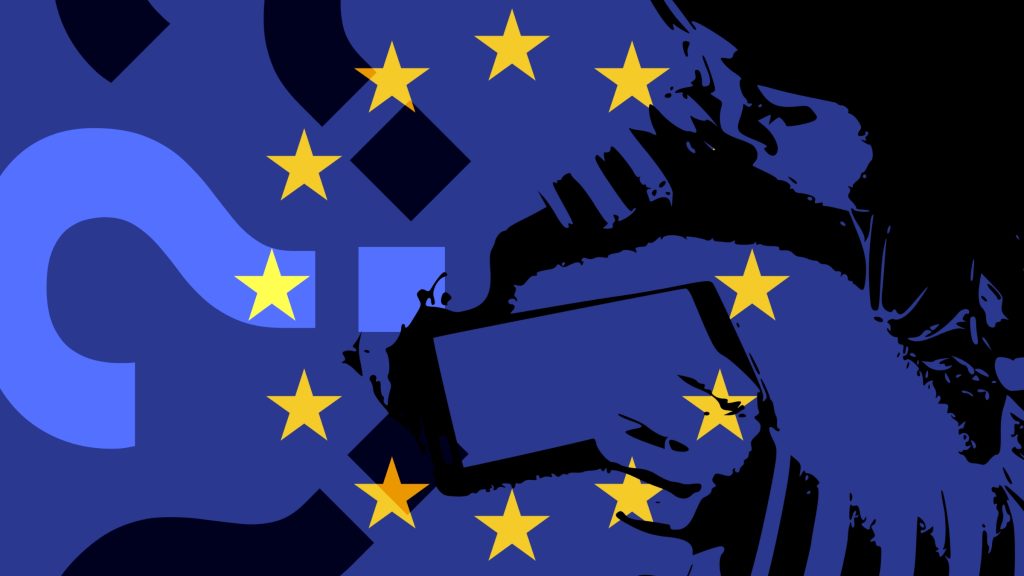
On Wednesday, Europe’s fiercest digital safety debate witnessed its latest update with the European Parliament backing a proposal to set 16 as the social media age verification limit, following parents’ concern over their children navigating social networks built for adults, engineered for attention, and increasingly becoming more infused with AI.
The social media age rules decision, though not legally binding, demonstrates how Europe views children’s digital lives.
The proposal calls for stringier age verification, and its core, questioning whether children should grow up as unwitting test subjects in an algorithmic world. In parallel, lawmakers want stricter control, better design oversight, and parental involvement when it comes to kids’ online access.
Tougher EU Social Media Age Rules
In October, when the first draft was released, it urged “the establishment of a harmonized European digital age limit of 16 years old as the default threshold under which access to online social media platforms should not be allowed unless parents or guardians have authorised their children otherwise.”
Members of the European Parliament adopted the report with 483 votes in favor, 92 against, and 86 abstentions. At the time, lawmakers recommended an absolute minimum age of 13, below which no child may not be on any networking platform without social media parental control.
The same threshold would apply to video-sharing platforms and “AI companions,” whose spread among teenagers has also raised ethical alarms.
The minimum age to use social media resolution in the EU does not implement a ban, but rather pushes lawmakers to consider one, leaving the European Commission to draft any future legislation.
Supporters believe raising the age limit could reduce harmful exposure and addictive design tricks. Critics warn children may simply evade checkpoints, as many already lie about their online age verification methods.
Most platforms set their threshold at 13, including TikTok, Facebook, and Snapchat, yet European data continues to show large numbers of under-13 users. Different countries, different rules, but for now, Europe remains fragmented on digital age limits.
- Belgium allows children over 13 to open accounts without parental consent.
France requires approval for under 15 users, and proposals now urge banning smartphones for children under 11.
- Germany only allows for ages 13–16 to join platforms under parental consent, though the application remains shaky.
- Italy demands parental approval until age 14, while the Netherlands imposes no legal age, but schools forbid smartphones in class since 2024.
Norway proposed raising social media consent to 15. Denmark has already reached an agreement to set its minimum age at 15. Outside Europe, Australia now blocks under-13s from accessing social platforms entirely, with fines reaching A$49.5 million for violations. The UK enforces strict safeguards under the Online Safety Act, though it has not set a firm age limit.
Preparations for EU Age Verification Laws
As the social media age verification debate intensifies, Brussels is designing a universal verification system to prevent minors from bypassing age rules with a simple birth year typed on a screen.
“To help online platforms implement a user-friendly and privacy-preserving age verification method, the Commission is developing a harmonised approach across the EU in close collaboration with the Member States.”
The July 2025 age verification privacy Blueprint allows users to continue age verification privacy and state that they are over 18 or another threshold like 13+ without disclosing personal data beyond the necessary age confirmation.
It fits into the EU’s upcoming Digital Identity Wallet, expected by 2026.
A second blueprint, published later that year, supports passports, ID card onboarding, and integration through the Digital Credentials API. The software is open source, customizable, and now entering live Member-State testing.
On July 14, the Commission said that EU Member States retain the right to set their own age limits, and platforms must comply. This ends years of uncertainty over whether nations could legislate independently.
Stricter verification from the Digital Services Act (DSA) could reshape online marketing, audience targeting, and liability. Companies may soon need to prove age compliance or face penalties.
As policymakers tighten the social media age verification and other digital gates, the real question surfaces, will age checking systems protect children or simply push them toward corners of the internet even harder to regulate?
Europe now is in a state of two roads, and one taken by biometric age verification tech. Between digital freedom and childhood protection lies a balancing act that will define the next decade of online public life.
Inside Telecom provides you with an extensive list of content covering all aspects of the tech industry. Keep an eye on our Tech sections to stay informed and up-to-date with our daily articles.